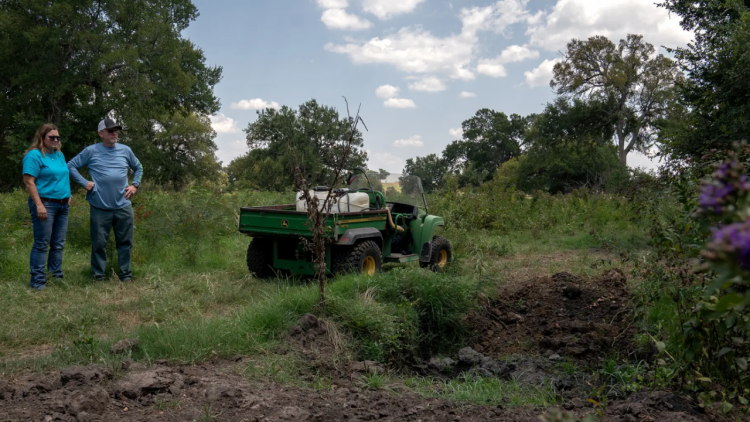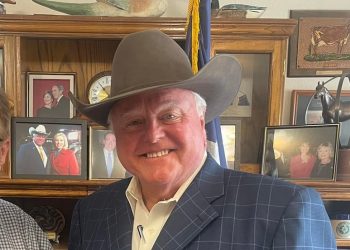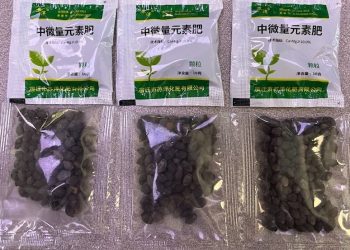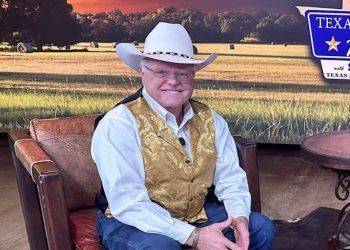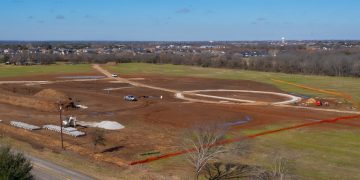Waco, TX – Farmers in Johnson County, Texas, are facing an existential crisis as they discover their lands and livestock have been poisoned by hazardous chemicals, putting their livelihoods and the food supply at risk. Tony Coleman, a rancher in Grandview, has watched more than 35 of his Black Angus cattle die in the span of just one year. The cause? A toxic fertilizer made from biosolids—sewage sludge—tainted with perfluoroalkyl and polyfluoroalkyl substances (PFAS), commonly known as “forever chemicals.”
The tragedy began in early 2023, when Coleman noticed strange symptoms in his cattle—drooling, limping, and stiffness—before they quickly died. The loss of a 3-week-old calf, a cow, and a prized bull named Little Red was particularly devastating. “This is destroying our lives,” Coleman said. “You never know what you’re going to get every day when you get down here.”
His neighbor, James Farmer, has faced similar losses. In addition to the death of two calves, Farmer found his wife’s two horses lying lifeless in the pasture, their bodies scavenged by buzzards. “It’s hard for me to tell her, because I know she’s gonna break down,” Farmer said, questioning why his animals were dying in such quick succession.
The men soon realized that their animals’ deaths were linked to something far beyond their control. A pungent, sewage-like odor began to drift from a neighboring property where piles of fertilizer, made with biosolids, were being spread. After heavy rains washed the fertilizer onto their land, the farmers found fish floating dead in their stock ponds, where their livestock drank.
Samples taken by an environmental crime investigator confirmed the cause of the deaths: the fertilizer contained PFAS, chemicals that are widely used in consumer products like nonstick cookware, waterproof clothing, and pizza boxes. These chemicals are notorious for their ability to resist heat, water, and oil, and once in the environment, they do not break down, accumulating in soil, water, and living organisms.
The biosolids used to create the fertilizer come from wastewater treatment plants, where sewage is processed, and solids are separated out. These solids, which are often rich in nutrients, are then sold to farmers as a low-cost alternative to chemical fertilizers. But increasingly, biosolids are being contaminated with PFAS, posing a hidden threat to agricultural lands and livestock.
“Some people are saying these PFAS contamination incidents are isolated. No, they’re not,” said Kyla Bennett, a former EPA employee and science policy director for the nonprofit group Public Employees for Environmental Responsibility. “This is a nationwide problem, but nobody is looking for it.”
PFAS contamination of biosolids is not unique to Texas. In fact, an estimated 5% of all U.S. crop fields—up to 20 million acres—could have been fertilized with biosolids contaminated by these dangerous chemicals. From 2016 to 2021, more than 19 billion pounds of biosolids-based fertilizer were spread on American farms, many without farmers realizing the risks.
The Environmental Protection Agency (EPA) has set limits for PFAS in drinking water, but it has yet to establish regulations for biosolids, leaving farmers in the dark about the safety of the fertilizers they use. In Texas, wastewater plants do not test for PFAS in biosolids, and there are no state-level regulations requiring such testing. As a result, farmers like Coleman and Farmer have had no way of knowing that the fertilizer they applied to their fields and pastures contained these toxic chemicals.
Without federal intervention or clear state regulations, the farmers are left to cope with the aftermath. Coleman, who has lost significant income from the death of his cattle, and Farmer, who has also seen his crops and animals affected, face an agonizing decision. They must choose between continuing to feed and care for contaminated livestock or halting operations altogether. Both men have opted to not sell any cattle, knowing that the animals are tainted by the chemicals.
“This land is just sucking this stuff up,” Coleman explained. “The cows drink the water, eat the grass—there’s no escaping it.”
For these farmers, the future is uncertain, and the damage to their land, animals, and businesses may be irreversible. As the problem grows, advocates like Kyla Bennett stress the urgency for federal and state authorities to address the threat of PFAS contamination in biosolids before it leads to further harm to agriculture, the environment, and public health.
In the absence of regulation, these ranchers are left to bear the financial and emotional cost of a problem they could not have anticipated—a reminder that the impact of PFAS contamination is far-reaching, hidden in everyday products and now poisoning the very land that feeds the nation.

